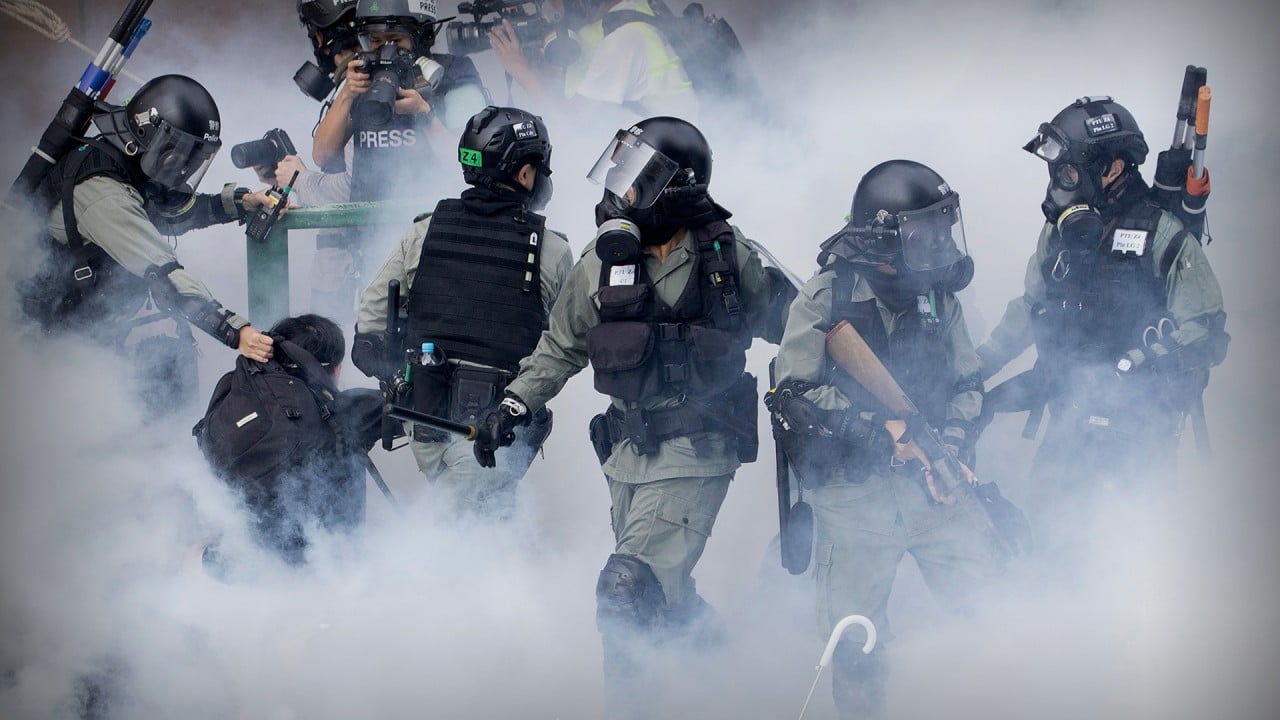
Hong Kong protests: top court to scrutinise precedent deeming zip ties ‘instruments fit for unlawful purpose’
- Court of Final Appeal agrees to look at case after protester who was jailed for carrying the everyday items asked for last chance to clear his name
- Case revolves around the interpretation of a list of unlawful items in a part of the Summary Offences Ordinance first drafted in 1845
A legal precedent finding plastic zip ties to be “instruments fit for unlawful purposes” will be scrutinised by Hong Kong’s top court after the first person jailed for possessing the everyday item at a 2019 protest asked for one last chance to clear his name.
Three Court of Final Appeal judges on Friday agreed to a full hearing to examine whether the charge of possession of an instrument fit for unlawful purposes could be broadly interpreted to go after anyone carrying anything with criminal intent.
Prosecutors have employed the charge as a catch-all offence to indict suspects for carrying a host of ordinary items deemed capable of facilitating illegal activities during the 2019 anti-government protests.
The appellant, property agent Chan Chun-kit, was jailed for 5½ months for carrying 48 zip ties near the scene of clashes at Victoria Park in Causeway Bay on November 2 that year.
The 35-year-old was the first person to be tried, convicted and jailed for keeping the plastic fasteners.
The Court of Appeal upheld Chan’s conviction last October by allowing a broad interpretation of the charge so as to cover different, and even innovative, instruments used in the commission of a crime.
The Summary Offences Ordinance stipulates that any person possessing “any wrist restraint or other instrument or article manufactured for the purpose of physically restraining a person, any handcuffs or thumbcuffs, any offensive weapon, or any crowbar, picklock, skeleton key or other instrument fit for unlawful purposes, with intent to use the same for any unlawful purposes” is liable to a HK$5,000 (US$643) fine or two years behind bars.
In applying for permission to lodge an appeal before the top court on Friday, Chan’s counsel, Steven Kwan Man-wai, argued that based on the nature of the items listed, the offence was initially intended to be limited to three unlawful purposes: restraint, assault and trespass. However, he said, its application had been widened since the 1960s due to an erroneous reading by the court.
Under that mistaken reading, he argued, the last part of the provision – “other instruments fit for unlawful purposes” – was considered a fourth, catch-all category unto itself.
Kwan supported his interpretation by pointing to the absence of a so-called Oxford comma in the phrase “any crowbar, picklock, skeleton-key or other instrument fit for unlawful purposes”. The comma’s absence, he argued, was an indication that such instruments were meant to be lumped under the third category of intent, trespass, which would not apply to zip ties.
The lawyer further submitted that the differences in punctuation between the original English provision drafted in 1845 and its Chinese counterpart, which only came into being more than a century later, gave rise to a risk of grave injustice done to defendants who received legal advice from lawyers who did not read Chinese.
“The interpretation that has been put on the provision since the 1960s may create injustice which is serious enough to require intervention or consideration by this court,” Kwan said.
Justices Roberto Ribeiro, Joseph Fok and Johnson Lam Man-hon allowed Chan to advance his case before a full panel of five judges on the grounds that the case involved serious questions on the law and potentially “substantial and grave injustice”. The appeal will be heard on June 16.

